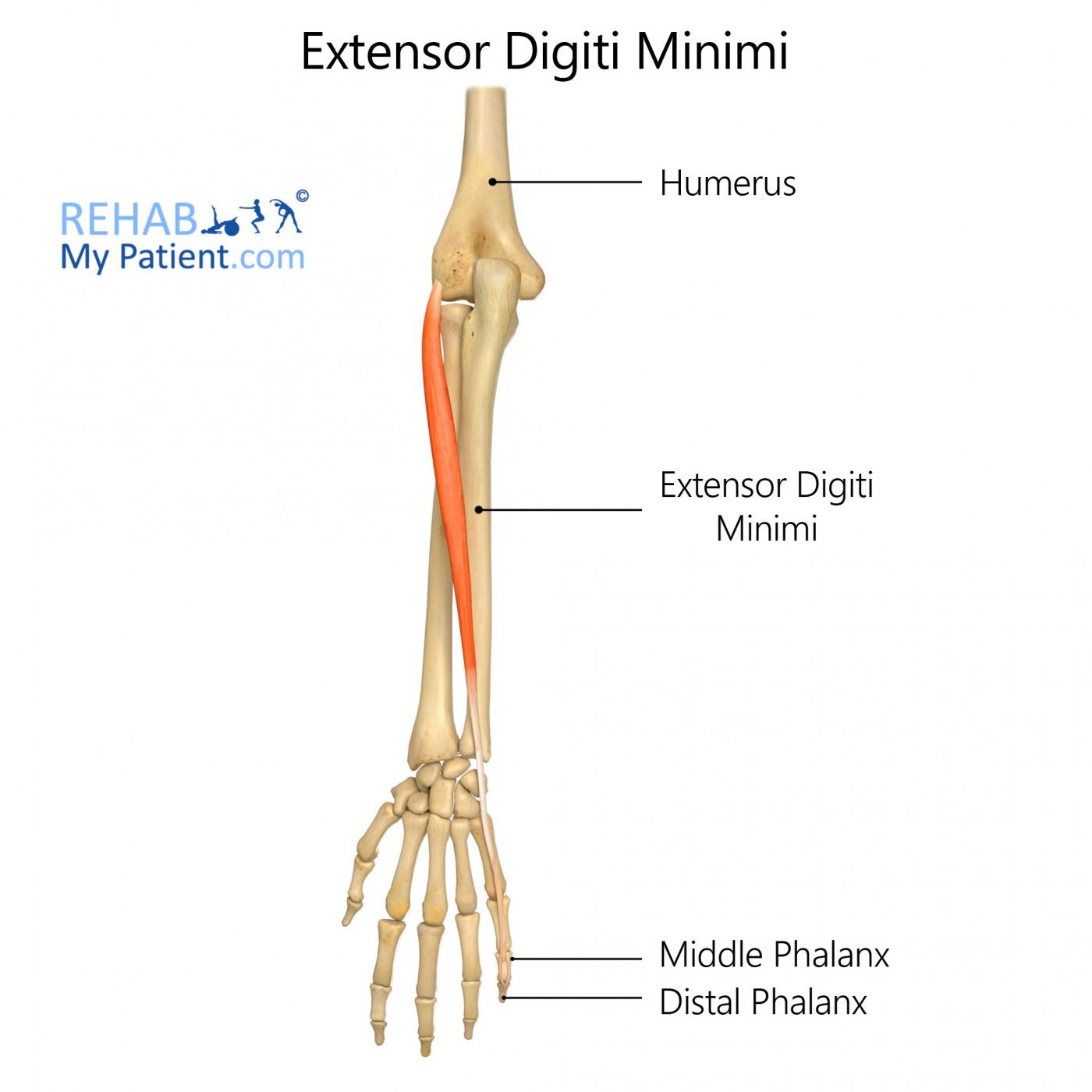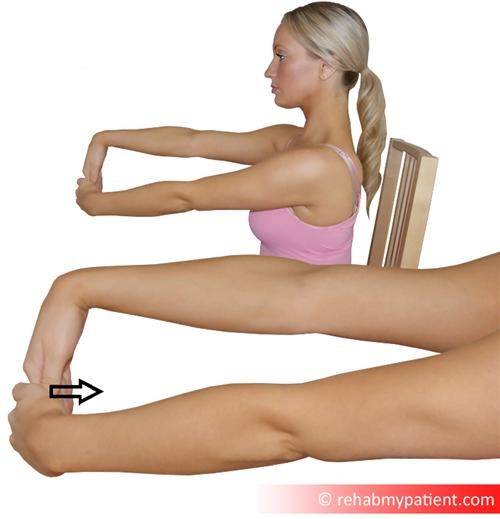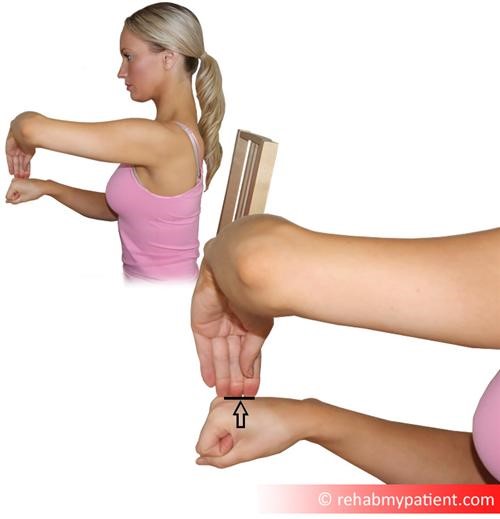Extensor Digiti Minimi
Posted on 23rd Jul 2020 / Published in: Hand/Fingers/Thumb , Wrist

General information
Extensor digiti minimi is a slender forearm muscle situated on the ulnar side of extensor digitorum. The muscles of the forearm can be divided into two functional groups, supinators (extensors) and pronators (flexors).
Literal meaning
The muscle that extends the little finger.
Interesting information
Several anatomical variations of extensor digiti minimi have been clinically observed. In some cases, there is an additional fibrous slip extending from the lateral epicondyle of the humerus (the origin). Occasionally, the tendon of insertion fails to divide properly or a fibrous slip is extended to the ring finger. Also, fusion with the extensor digitorum muscle is fairly common.
Extensor digiti minimi extends through the fifth extensor compartment. Anatomical variations in this compartment may cause tenosynovitis which can drastically reduce the function of extensor digiti minimi.
To palpate extensor digiti minimi lay your forearm and hand on a flat, still surface with the palm of your hand facing down. Place your opposite hand over your forearm as you raise just the little finger. You should be able to feel the movement of extensor digiti minimi with each rising of your little finger.
Origin
The lateral epicondyle of the humerus (via the common extensor tendon).
Insertion
The tendon divides in two then joins the expansion of extensor digitorum on the dorsal side of the first phalanx of the little finger.
Function
Extends (straightens) the little finger and the wrist
Nerve supply
Posterior interosseous nerve (C7 and C8)
Blood supply
Posterior interosseous artery

Relevant research
Researchers investigated two cases of closed extensor digiti minimi (EDM) tendon injuries after wrist hyperflexion and one case of tenosynovitis around the EDM. The study showed that distal bifurcation (splitting) of the EDM may cause tendon impingement at the septum which leads to tendon injuries.
Moon-Jib Yoo, Kyung-Tae Chung, Jong-Pil Kim, Myeung-Ju Kim, Kyung-Joon Lee (2011). “Tendon impingement of the extensor digiti minimi: Clinical cases series and cadaveric study”. .Clin. Anat. 25:755–761.
This study focused on anatomical variation of extensor digiti minimi. Researchers found that in 34.2% of the cases studied there was an accessory tendinous slip from extensor carpi ulnaris observed in the tunnel of the sixth wrist compartment. This variation has important clinical implications for patients with this accessory EDM.
T Nakashima (1993). “An accessory extensor digiti minimi arising from extensor carpi ulnaris”. J Anat.; 182(Pt 1): 109–112.
Forearm extensor exercises

Hold your arm in front of you. With your opposite hand, gently apply enough pressure to move your wrist and hand down. Only apply adequate pressure to achieve a muscle stretch, not enough to cause pain or discomfort. Hold this position for five full seconds while breathing deeply then remove the pressure.
Now with the hands in the same position, attempt to push up against the top hand. Apply adequate resistance to prevent the bottom hand from moving. Hold this for five seconds and release. Repeat the whole exercise ten times.

Sign UP
Sign up for your free trial now!
Get started with Rehab My Patient today and revolutionize your exercise prescription process for effective rehabilitation.
Start Your 14-Day Free Trial